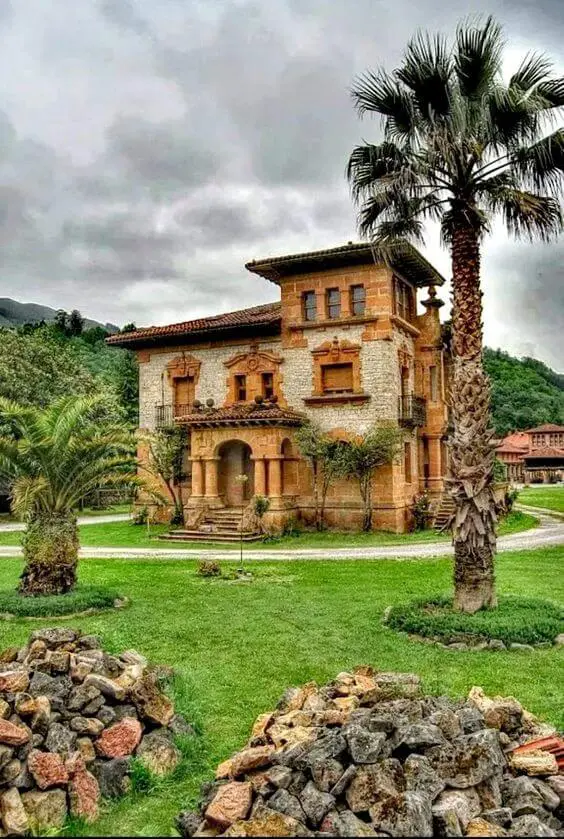For homeowners who are looking for a way to upgrade their floors and elevate the overall design of the house, natural stone is the best choice. It is aesthetically pleasing, durable, as well as adds value to your house. Stone flooring is suitable for almost all the places in your house including living rooms, bedrooms, foyers, kitchens, and outdoor areas.

Natural stones give a sort of elegance and luxurious feel that normal tiles cannot accomplish. The term “natural stone” refers to a variety of mineral substances that are born in the mountains. Natural stones are hard and cool, making them ideal for homes in warmer climates such as India. Here, we will discuss the types of natural stone flooring along with their pros and cons.
1. Marble Flooring
Classic and timeless, marble is one of the most popular and recognizable flooring materials. The contrasting color lines running through the surface of marble tiles are known as veining. Veining can either be heavy and pronounced or delicate and barely noticeable. Marble is a premium architectural element, not just in flooring, but it has other uses as well. It is the finest example of luxurious material.
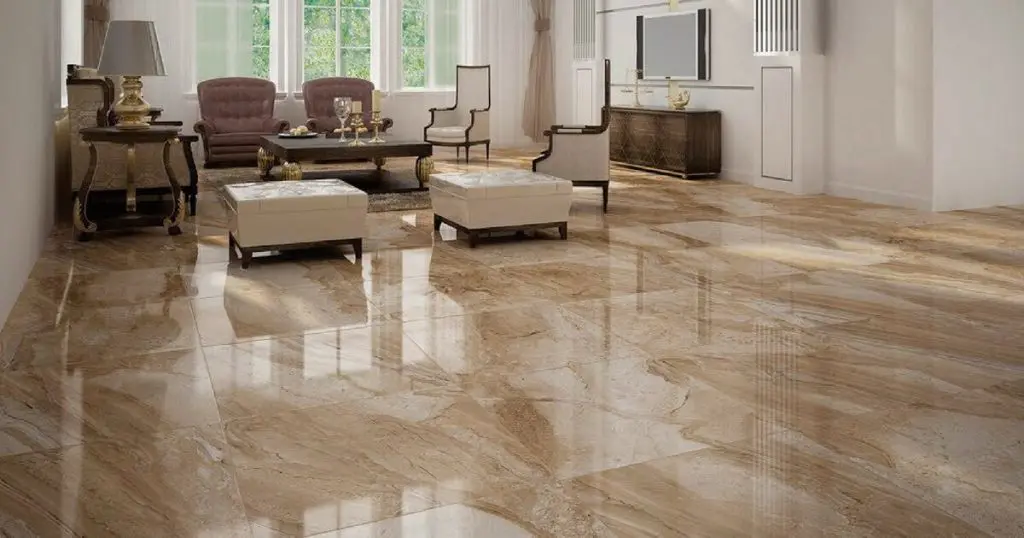
Pros of Marble Flooring
- There are more than hundreds of different types of marbles all over the world. Each has its own color, patterns, and charm.
- Polished marble is smooth and shiny, giving the illusion that it is translucent by reflecting light. Polishing can also bring out the colors in marble.
- Can last for longer periods of time and is durable enough to resist scratch.
Cons of Marble Flooring
- Installation can be tricky since some marble can be brittle or may require an epoxy mortar to install. Most people prefer to have them installed by professionals instead of doing them themselves.
- It can damage easily acid-based products such as citrus fruits, coffee, etc.
- Although it is scratch-resistant, the same cannot be said about stains. The spills must be quickly cleaned so they won’t leave behind permanent damage.
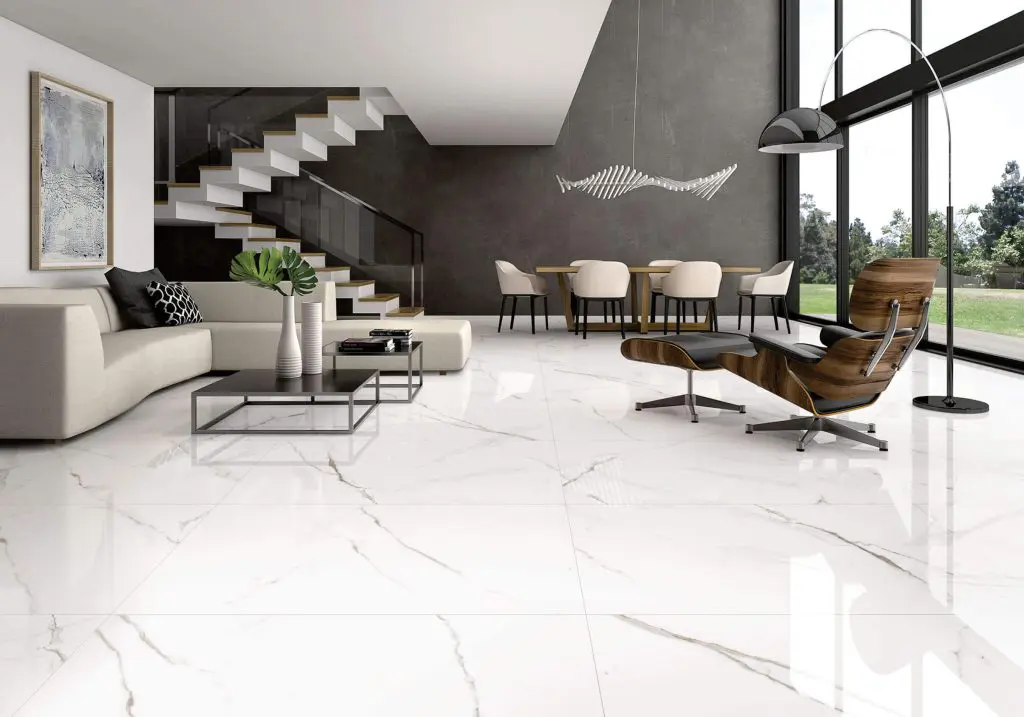
2. Slate Flooring
Slate is yet another fine example of natural stone flooring. Although it is not as luxurious as marble, it provides a certain appeal to your house with the awe-inspiring essence of natural stone.
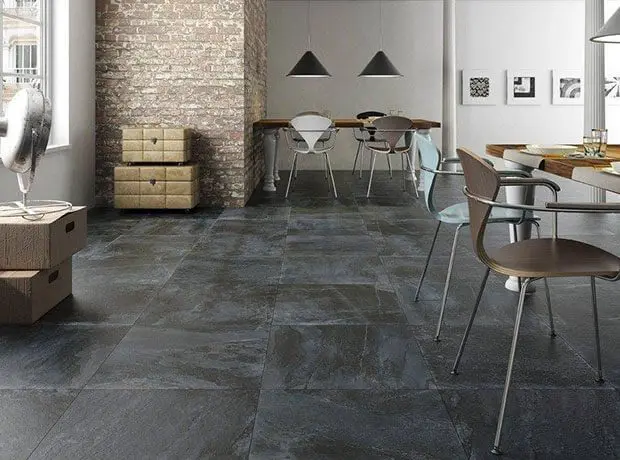
Pros of Slate Flooring
- Although not as cheap as ceramic tiles, slate is still an affordable natural stone flooring out there.
- It is water-resistant so it can be used in rooms with high moisture levels and a high likelihood of liquid contacts such as bathrooms and kitchens.
- Because it is extremely durable and highly resistant to moisture, it can be used both outdoors and indoors.
- It is easy to clean and maintain. It doesn’t require special cleaning methods. All you have to do is regularly sweep to keep it clean.
Cons of Slate Flooring
- Its durability comes at the high cost of being extremely heavy. This makes the installation difficult and creates potential risks for damage by breaking.
- Slate is extremely hard so standing on it for a long time can be uncomfortable. This is more prone to people with joint or foot problems.
- Dropping heavy objects on slate flooring may cause it to break or at least create some cracks.
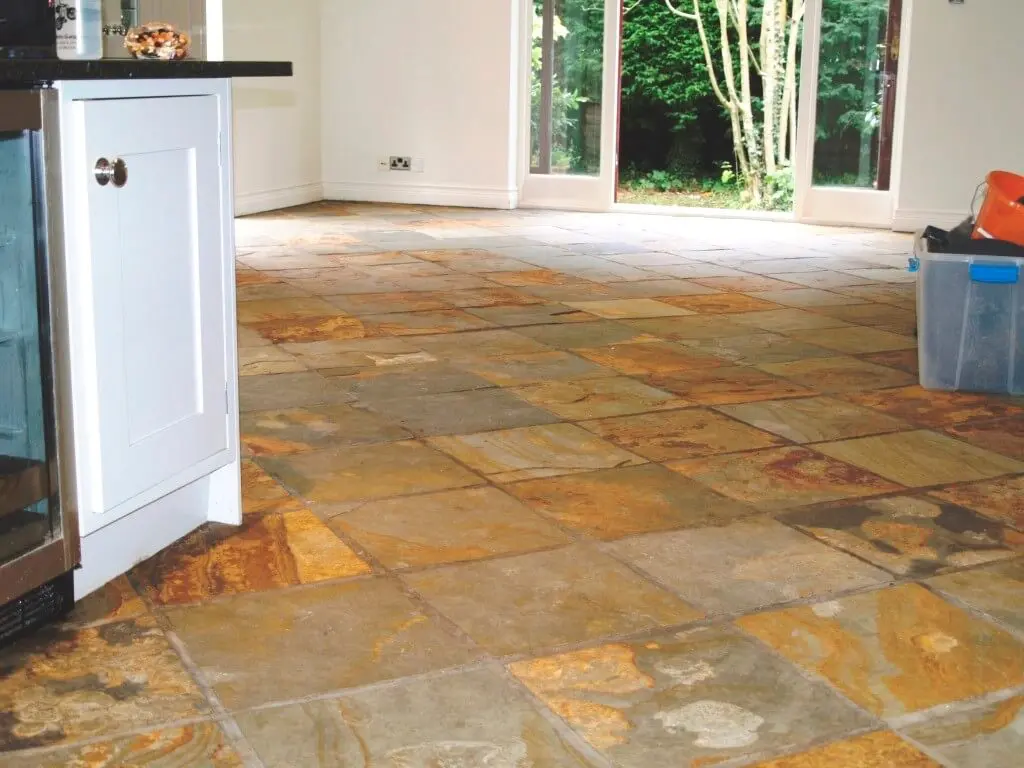
3. Laminate Flooring
Limestone is mainly made of calcium carbonate and is a sedimentary rock. Limestone is used for both traditional and contemporary designs. It creates an earthy appeal to the house and is found in a variety of colors, from beige to even grey.
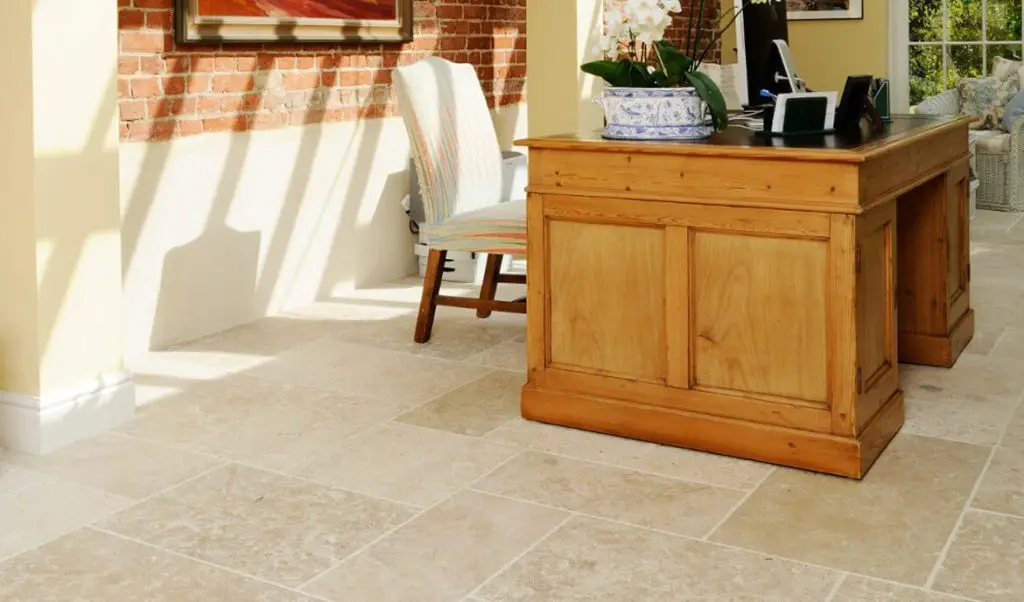
Pros of Limestone Flooring
- It is the most affordable natural stone for flooring compared to other stones.
- Limestone is soft, providing a warm and earthy tone wherever it is installed. This makes it ideal for kitchens, bathrooms, or any other space you want to brighten with flooring.
- Although it is called a soft stone, limestone can last for longer periods of time because of its mineral composition.
Cons of Limestone Flooring
- Maintaining limestone can be a bit difficult. It could easily get scratched even when you are vacuuming the floor.
- Larger tiles are very heavy to handle. They are also difficult to transport and install. It is often the case that the tiles would break or crack even due to a slight mishap during transportation or installation.
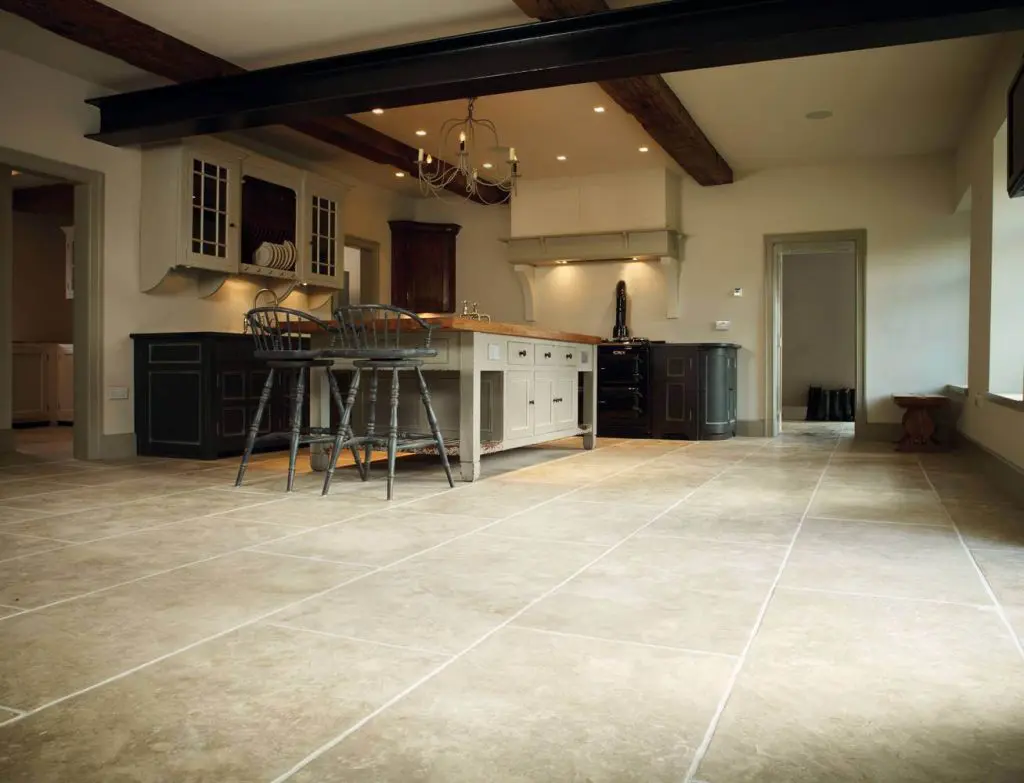
4. Granite Flooring
Granite is a particularly hard, quartz-based stone. Just like marble, granite is a luxurious natural stone used in several elements of the house for decorative purposes. It is suitable for both contemporary and traditional houses because of its color variations.
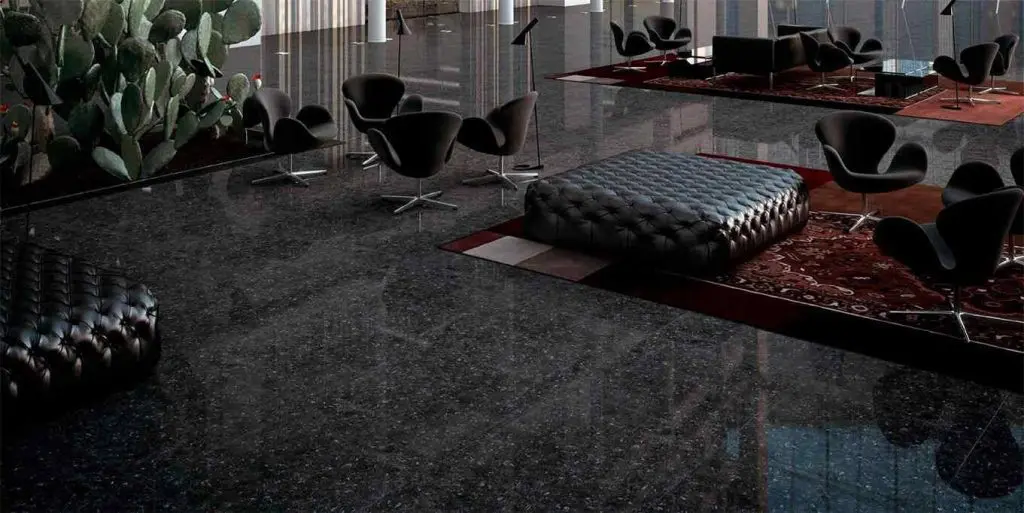
Pros of Granite Flooring
- For one of the hardest natural stones like granite, durability is its main advantage. Installing granite flooring in your house could easily be a lifetime investment.
- It is ideal for both dry and wet areas in your home. You don’t have to worry about moisture damaging it since it is impenetrable to liquids.
- No two slabs or tiles or granite are identical. This adds to the charm of the entire space and it is one of the reasons why people choose granite as a flooring material.
Cons of Granite Flooring
- Granite is one of the most expensive natural stones available for flooring. It is even comparatively costlier to marble. While there are some grades of granite available in the market for a cheaper price, they are actually composites of granite and resin. Thus, the composites are nearly as good as the real deal.
- Granite is particularly a heavy stone, so you need to make sure that your floor can withstand its weight.
- Maintaining granite can be expensive sometimes. Like every other stone flooring, granite tiles need to be sealed during installation. However, to maintain that shiny, beautiful look on your granite surface, you would have to reseal it every now and then.
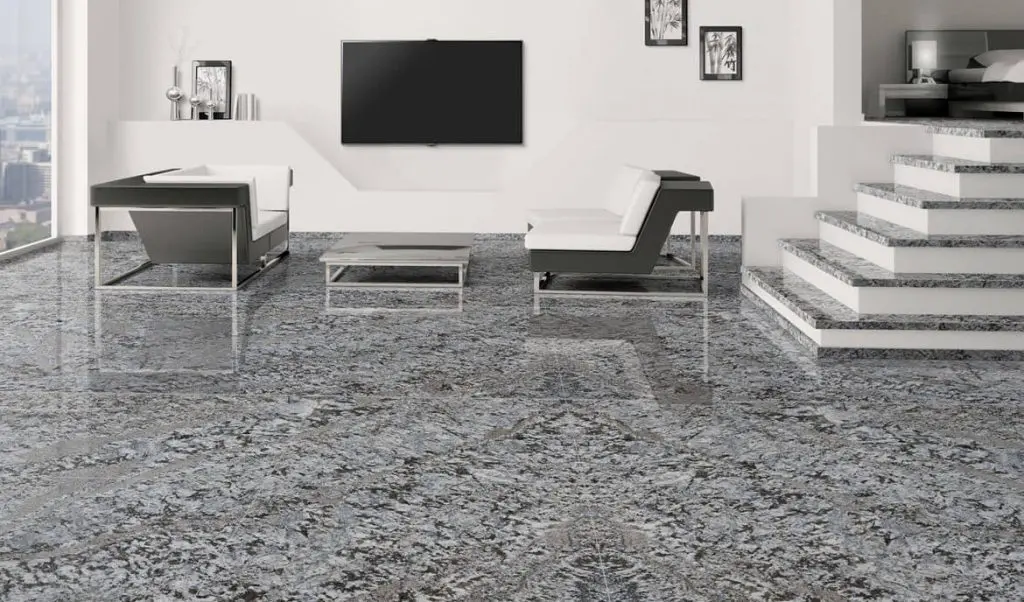
5. Sandstone FLooring
Sandstone is a beautiful natural stone that creates a distinctive style in any space, both indoors and outdoors. As the name suggests, its name is derived from the sand as it seems to resemble the look of beach and desert sand. Sandstone comes in a variety of colors that mimic sand such as gold, red, brown, tan, and so on.
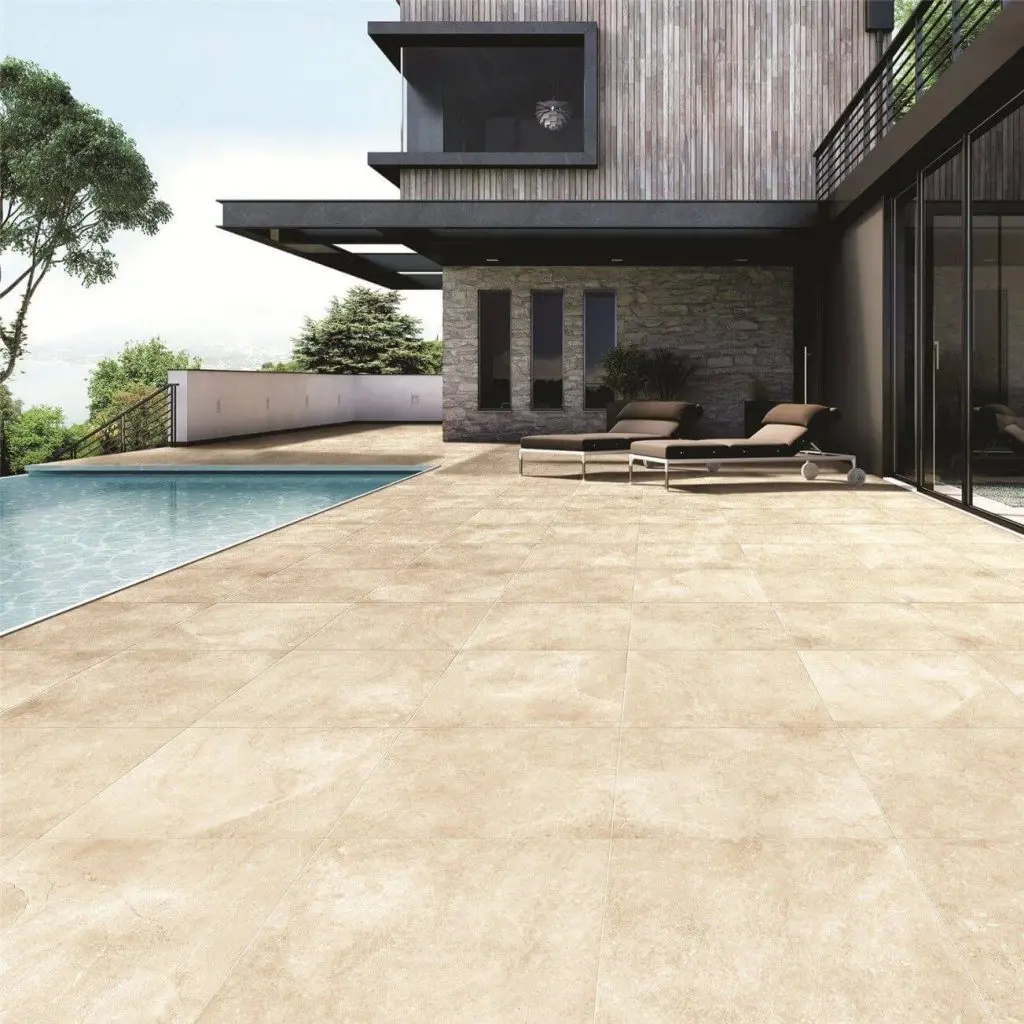
Pros of Sandstone Flooring
- One of the best features of sandstone is its unique texture as it comes from the mountain naturally craggy and jagged. This is leveled out in flooring tiles through a process called “gauging”.
- Sandstone is easily replaceable as compared to other natural stones. So, if any tile gets damaged, you can change it for a new one so long as you have a matching tile of the same size.
- The natural materials found in sandstone have an ineffable quality. Apart from having a wide range of colors, sandstone has a feeling of rock and earth that you can’t find in the imitation.
Cons of Sandstone Flooring
- The rate of water absorption is very high, so it is not suitable for places like kitchens and bathrooms. Even in the outdoors, it is preferable to have the spaces covered so the flooring won’t be affected by rain too much.
- Unlike granite and marble, sandstone can’t stand the test of time. Over time, it will lose its beauty due to weathering and aging.
- Since it is a soft stone, it is more prone to scratches, dents, and cracks compared to other natural stones.
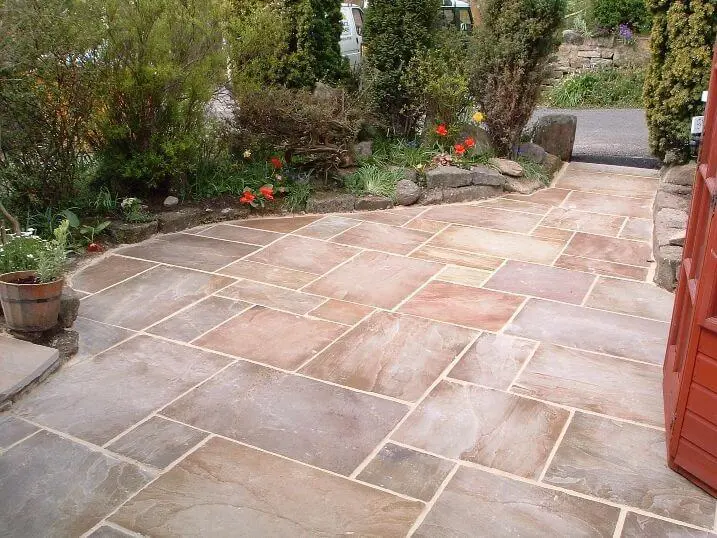
6. Travertine Flooring
Although it is commonly referred to as “travertine marble”, travertine is actually a type of limestone. Although travertine has been used in buildings for over four centuries around the world, it recently gained popularity as a flooring material. It’s preferred in both outdoors and indoors in spaces such as paving, walkways, living and common areas.
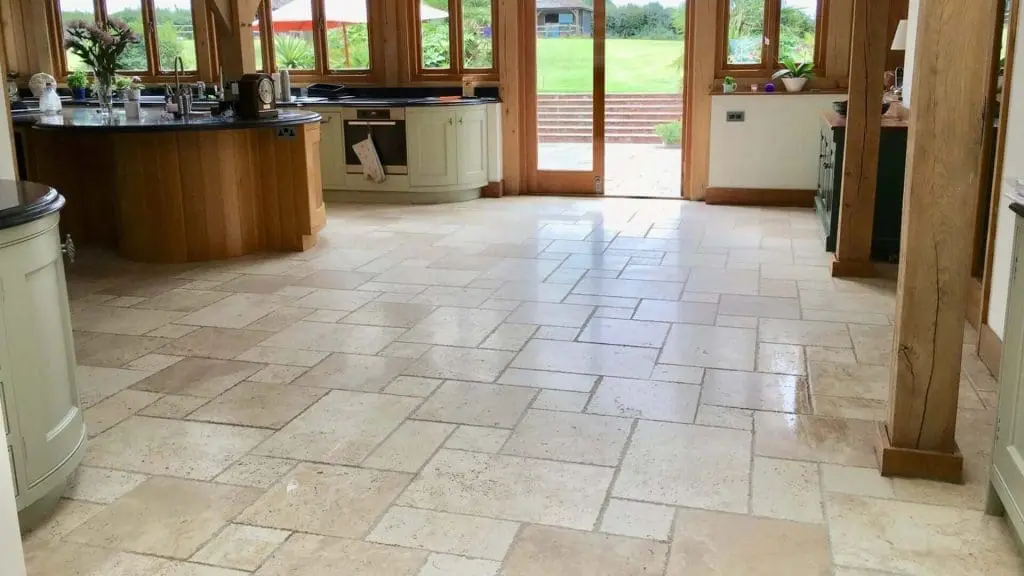
Pros of Travertine Flooring
- Travertine is yet another versatile natural stone where no two types are identical. The tiles will either feature speckles, swirls, and markings made by nature. These unique markings add great depth to any room.
- Although not impossible, travertine is hard to damage. In such cases, it will be easier for homeowners to replace that particular damaged tile without spending too much money.
Cons of Travertine Flooring
- Among other natural stones, travertine is one of the most porous since it naturally has many holes in it. Although the holes are small, they are easily noticeable, which can be a disadvantage for those who prefer uniformity on the surfaces.
- Travertine is highly reactive to acidic substances. If orange or lemon juice is spilled, then there is always a risk of a permanent stain.
- The cleaning agents must be selected after considering the ingredients. They shouldn’t have any acidic substances such as vinegar or lemon. Salt should also be avoided for cleaning. These products will leave a permanent stain on the floor.
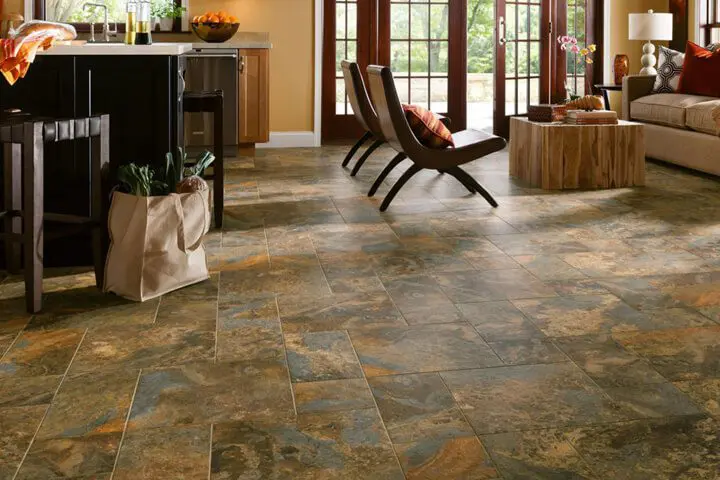
Whether they are architects, interior designers, or even contractors, anyone from this industry will agree that natural stone flooring is one of the best options for homes and commercial spaces. Natural stones exude luxury that far outshines carpets or synthetic surfaces.
– Tulisha Srivastava




